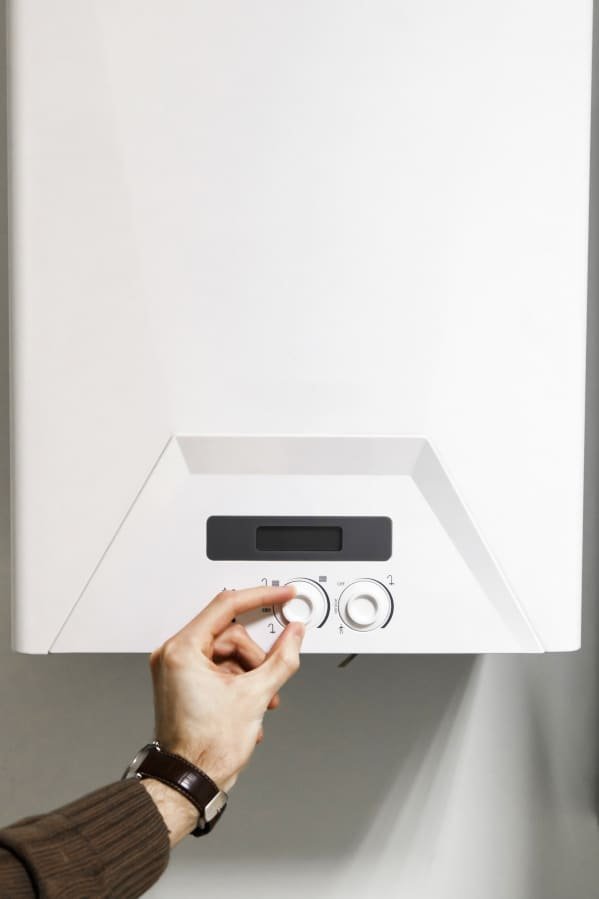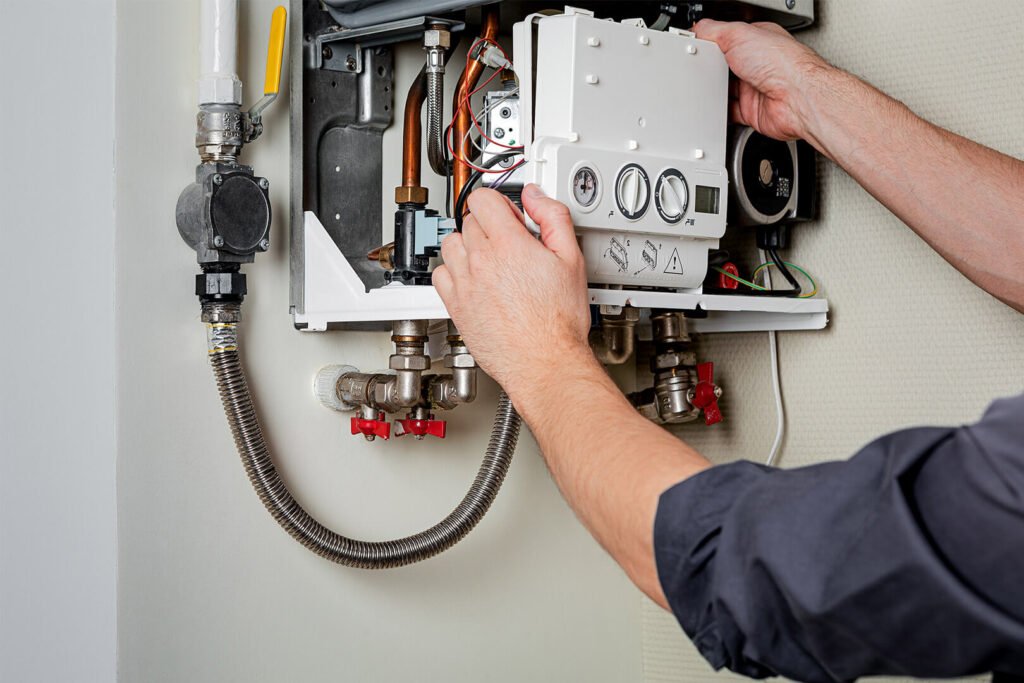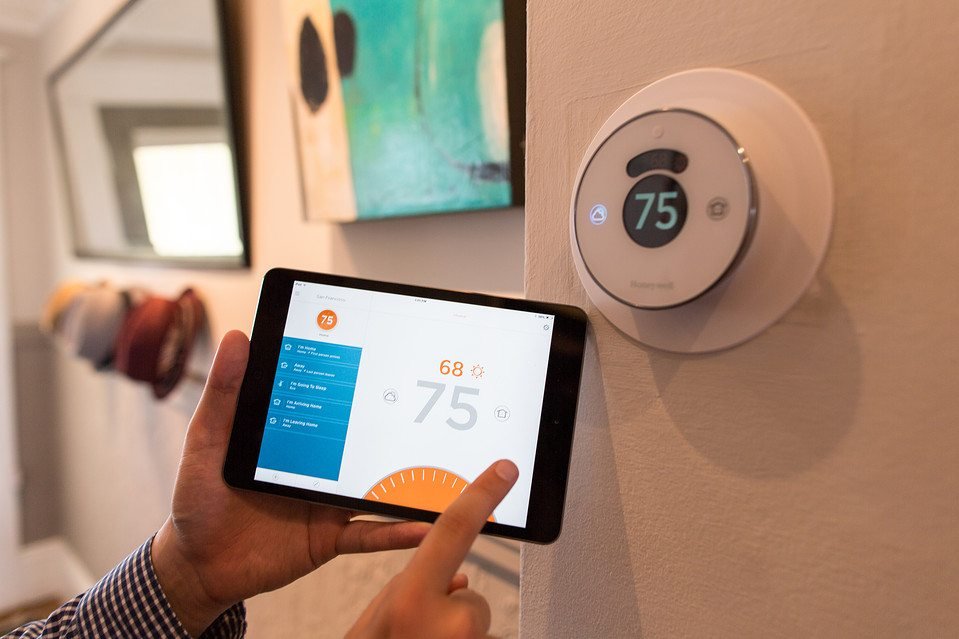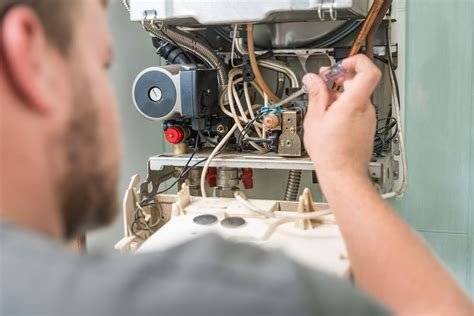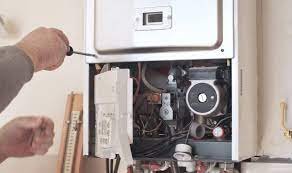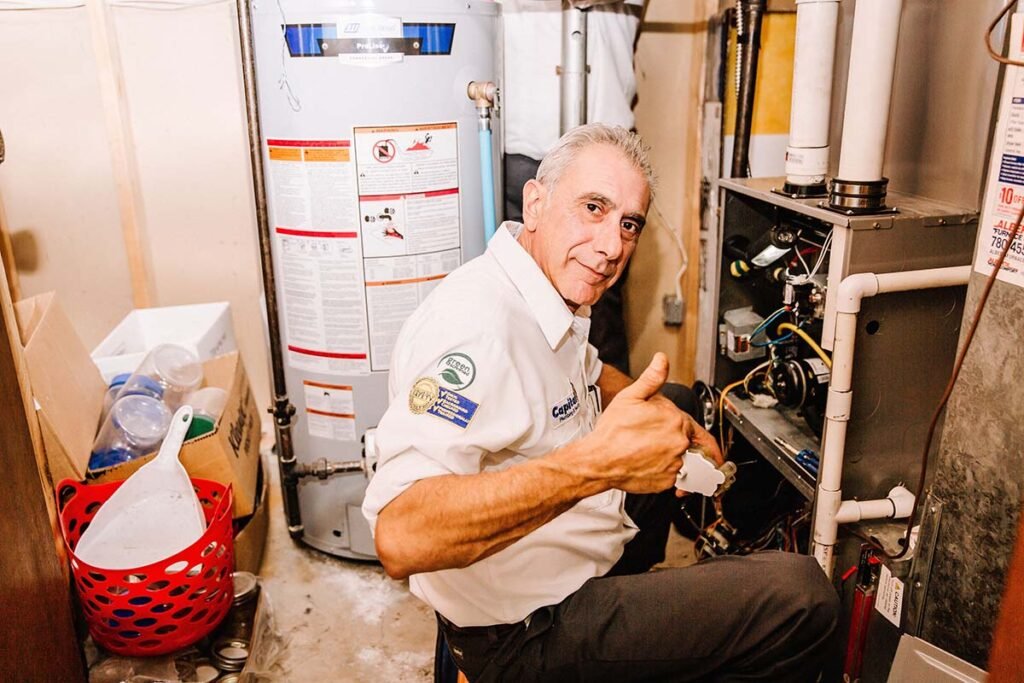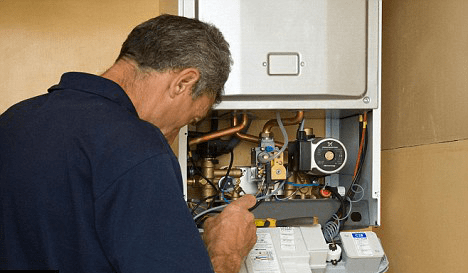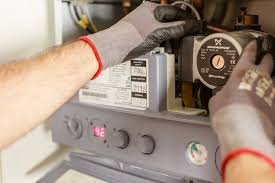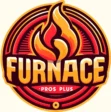Furnace Installation Strathcona - Your Dependable Heating Specialists
Furnace Pros Plus is your trusted partner for all your heating needs. With years of experience, we focus on providing superior heating services to keep your home warm and comfy. Our team of experienced specialists dedicate themselves to providing professional heating system setup, maintenance, and repair services. We comprehend the importance of an effectively working heating system, particularly during the colder months. We focus on effectiveness, cost, and customer complete satisfaction in every job (big or small). Whether you require a new heating system, a routine check-up, or emergency situation repairs, rely on Furnace Pros Plus for reliable and efficient heating services that guarantee comfort and convenience.
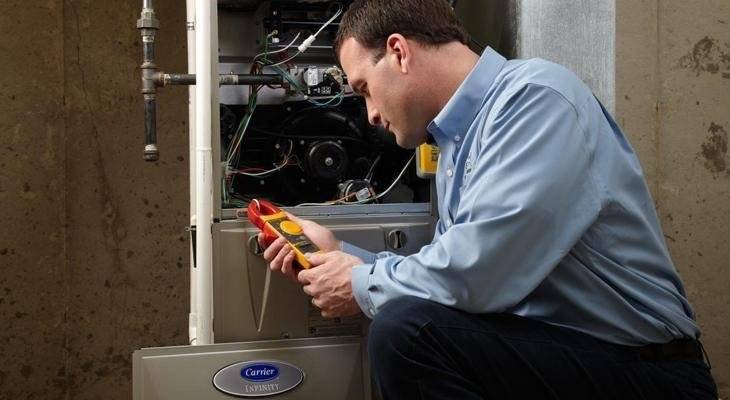
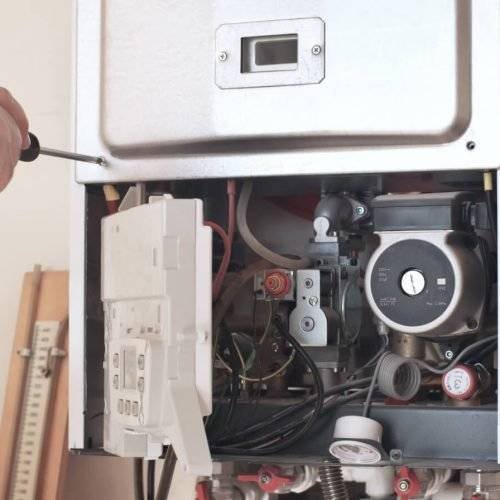
Who Are We?
Domestic Heating Installations & Repairs
Furnace Pros Plus stands apart as the premier heating system installation and repair contractor in Strathcona, Alberta, thanks to its unmatched devotion to quality, customer support, and proficiency. With years of experience in the heating and cooling market, Furnace Pros Plus has built a credibility for providing trusted and efficient services tailored to the distinct climate and needs of Strathcona citizens.
The business’s dedication to quality begins with its team of qualified professionals. Each furnace technician is not only highly skilled and knowledgeable about the current heating system innovations but also committed to continuous training and advancement. This ensures that every setup or repair is performed with the utmost accuracy and up-to-date methods, guaranteeing exceptional efficiency and longevity of your heating system.
Furnace Pros Plus comprehends the importance of a well-functioning heating system, particularly during the harsh Strathcona winters. That’s why they use a quick response to guarantee that any heating system emergency situation is dealt with immediately and successfully, lessening discomfort and prospective risks. Their 24/7 availability is a testament to their devotion to customer complete satisfaction and security.
Moreover, Furnace Pros Plus utilizes only the highest quality products and products in all their setups and repairs. By partnering with leading manufacturers, they guarantee that every component of your furnace unit is durable and efficient, providing optimal heating and decreasing energy costs. This dedication to quality, extends the life of the heating system, providing more worth for the financial investment.
In addition to their technical proficiency, Furnace Pros Plus excels in customer support. They focus on clear communication, providing comprehensive assessments and transparent rates without surprise fees. Their personalized approach means that every service is tailored to the particular needs and budget of their clients, guaranteeing that you feel valued and satisfied with every interaction.
For these factors and more, Furnace Pros Plus is the top choice for house owners needing heating system setup and repair services in Strathcona, demonstrating an unsurpassable blend of quality, proficiency, and customer-focused service.
How can we help you?
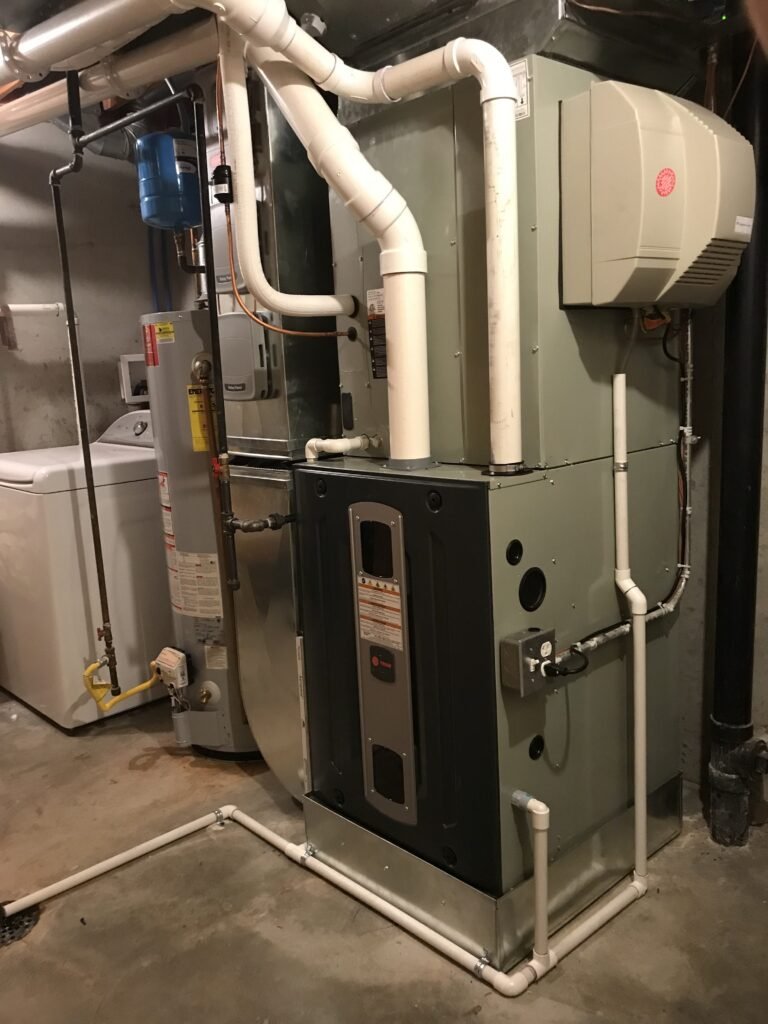
Understanding the Cost of Installing a New Furnace
Introduction
An operating heating system is important when it concerns keeping a comfortable and warm home during the colder months. Nevertheless, there comes a time when installing a new heating system is inescapable.
Understanding the costs associated with this procedure is crucial for house owners to strategy and budget accordingly. This comprehensive guide explores the various factors affecting the cost of installing a new heating system.
Factors Affecting Furnace Setup Expenses
Kind of Heater:
- Gas Heating Systems: Popular for their effectiveness, they normally cost more upfront however use lower operating costs.
- Electric Furnaces: They are less costly than gas heating systems. Nevertheless, electrical designs tend to have higher operational costs due to electricity costs.
- Oil Furnaces: These are less typical and can be more expensive due to the cost of oil.
Furnace Size and Capacity
- Square Footage: The size of your home directly impacts the capacity needed for the heating system.
- BTU Rating: Greater BTU rankings relate to more powerful heating systems, which can increase the cost.
Performance Ratings
Yearly Fuel Usage Performance (AFUE):
Greater AFUE rankings mean much better effectiveness however also featured a higher cost.
Brand and Quality
Top-tier brand names typically command higher costs due to their reputation for quality and longevity.
Installation Complexity
- Existing System: Upgrading from an old system may need additional work and cost.
- Ductwork: The condition and layout of existing ductwork can affect setup complexity.
- Availability: Difficult access to the setup website can increase labour costs.
Labour Expenses
Labour costs differ by region. In addition, the complexity of the setup can affect labour costs.
Extra Expenses to Think About
- Permits: Some areas need licenses for heating system setup.
- Inspections: City laws may need post-installation assessments for security compliance.
- Thermostats: Upgrading to a clever thermostat can sustain additional costs.
Average Cost of Furnace Replacement
While costs can differ widely based on the factors mentioned above, here are some average cost ranges for heating system setup:
- Gas Furnaces: $2,000 to $5,000.
- Electric Furnaces: $1,000 to $2,500.
- Oil Furnaces: $2,500 to $6,000.
These are rough price quotes and can differ based on particular home requirements.
Cost-Saving Tips.
Research and Compare.
Obtain several quotes from various specialists to guarantee competitive rates.
Look For Refunds and Rewards.
Look for energy effectiveness refunds provided by utility business or government programs.
Think About Long-Term Savings.
Buying a more efficient heating system can decrease energy expenses with time.
Conclusion
Setting up a new heating system is a significant financial investment, and comprehending the costs involved is important for any homeowner. By considering the kind of heating system, setup complexity, labour costs, and additional expenses, house owners can much better prepare for this required upgrade. Remember to seek several quotes, check out offered refunds, and consider long-lasting energy cost savings when choosing.
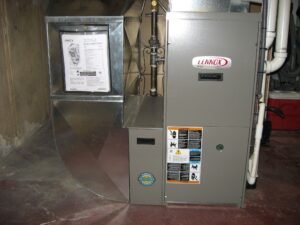
The Right Size Furnace for Your Home: A Comprehensive Guide
Introduction
Selecting the best size heating system for your home is crucial for guaranteeing efficient heating and convenience during the colder months. A heater that’s too small won’t keep your house warm, while one that’s too big can cause unnecessary energy consumption and irregular heating. This guide will help you determine the perfect heating system size for your home.
Understanding Furnace Sizing: BTU and Performance
We determine the size of a furnace in British Thermal Units (BTU). One BTU is the energy needed to raise the temperature of one pound of water by one degree Fahrenheit. When selecting a furnace, two key factors contribute: the BTU score, indicating the heating system’s heating capacity, and its effectiveness score, measured in Yearly Fuel Usage Performance (AFUE).
Calculating Your Home’s Heating Needs
You should determine your home’s heating needs to determine the right heating system size. The estimation considers factors like square video footage, climate zone, insulation quality, window type, and house layout. Normally, you require roughly 30-60 BTUs per square foot. Nevertheless, this varies based on your home’s particular qualities.
Climate Zone and Its Effect On Furnace Size
Your geographical location significantly affects the heating system size needed. Residences in colder areas, such as Strathcona, need more BTUs per square foot than those in milder environments. Seek advice from a heating specialist for particular suggestions.
The Role of Home Insulation in Furnace Sizing
Great insulation minimizes the quantity of heat loss, meaning you can go with a smaller heating system. Assess your home’s insulation in the walls, attic, and windows. Upgrading insulation can be a cost-effective way to reduce heating needs.
Factors To Consider for Various Types of Heating Systems
There are various kinds of heating systems, like gas, electrical, and oil. Each type has distinct sizing considerations. Gas heating systems prevail and efficient, electrical heating systems are more simple and much safer however typically more expensive to operate, and specialists install oil heating systems where gas isn’t offered.
Significance of Specialist Heating And Cooling Assessment
An expert HVAC evaluation is important. Professionals consider all variables, including ductwork and home layout, to advise the optimal heating system size. They can carry out a Manual J estimation, the market standard for determining heating and cooling loads.
Energy Performance and Cost-Effectiveness
Selecting a furnace with a high AFUE score is crucial for energy effectiveness and cost savings. Modern heating systems have AFUE rankings in between 80% and 98%, indicating the percentage of fuel converted into heating. While high-efficiency heating systems are more expensive upfront, they can result in considerable cost savings in the long run.
Resolving Typical Misconceptions About Furnace Sizing
A common misconception is that a bigger heating system is constantly much better. Nevertheless, an extra-large heating system can result in short biking, where the heating system often switches on and off, decreasing effectiveness and lifespan. On the other hand, a small heating system struggles to warm your home properly.
Long-Term Advantages of the Right-Sized Heater
Picking the right-sized heating system has long-lasting advantages, including constant convenience, lower energy expenses, minimized carbon footprint, and fewer maintenance problems. It’s a balance in between upfront costs and long-lasting cost savings.
Conclusion: Making an Informed Choice
Selecting the best size heating system is a choice that impacts your home’s convenience and energy effectiveness for several years to come. By comprehending the basics of heating system sizing and looking for professional guidance, you can make an educated choice that ensures optimal heating for your home.
Remember, the secret to an effective and comfy home lies in selecting the best heating system and regular maintenance and considering other factors like insulation and climate. With this comprehensive guide, you are fully equipped to select the ideal heating system for your home, providing warmth and convenience for lots of winters.

Replace or Repair Furnace: A All-inclusive Guide
Introduction
Deciding whether to change or repair your heating system is a significant choice for any homeowner. The choice impacts your instant convenience and security and has long-lasting monetary ramifications. This comprehensive guide will check out various aspects to consider, assisting you make an informed choice.
Understanding Your Heater
Lifespan and Types
Furnaces normally have a lifespan of 15-20 years. The two primary types are gas and electrical, each with various maintenance and operational costs.
Signs of Difficulties
Typical indications that your heating system may require attention consist of uncommon sounds, inconsistent heating, and increased energy expenses.
When to Think About Fixing Your Furnace
Repair work is typically the very best choice for small problems or heating systems that are relatively new and still under guarantee.
Cost-Effectiveness
Fixing can be more economical for small problems. Nevertheless, frequent repairs may suggest a deeper issue.
Ecological Impact
Repair work typically have a lower ecological impact than changing the entire unit.
When Replacement is the Very Best Alternative
You should consider replacement if your heating system is near the end of its lifespan, repairs are ending up being significantly expensive, or if it could be more energy efficient.
Long-lasting Cost Savings
While the preliminary cost is higher, a new heating system can be more energy-efficient, saving you money on energy expenses.
Technological Improvements
Newer designs feature advanced innovation, such as wise thermostats, which use much better temperature control and effectiveness.
Weighing Your Choices
Cost Analysis
Compare the cost of repairs with time versus the one-time cost of a new heating system.
Energy Performance
Assess how your current heating system’s effectiveness is affecting your energy expenses.
Home Worth
Consider how a new heating system may increase the worth of your home, particularly if you plan to offer in the future.
Expert Recommendations
Looking For Specialist Opinion
Speak with HVAC professionals to assess the state of your current heating system and get price quotes for repair and replacement.
Significance of Routine Maintenance
Routine maintenance can extend the life of your heating system, whether you choose to repair or change it.
Conclusion
In conclusion, choosing to repair or change your heating system depends on various factors, including age, condition, cost, and energy effectiveness. By considering these factors and looking for professional guidance, you can make a decision that ensures convenience, security, and monetary prudence for your home.
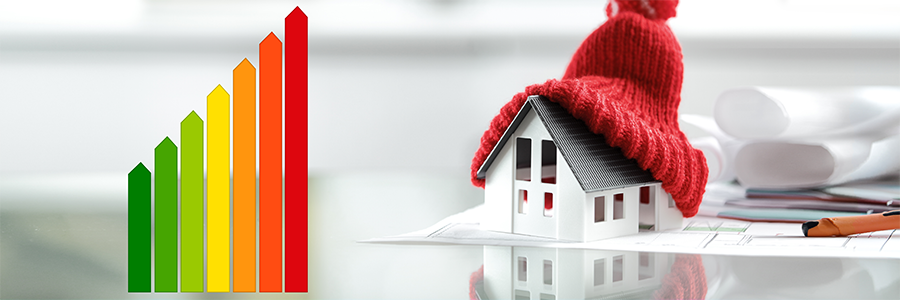
What Season is the Most Affordable to Replace The Furnace?
Will a Modern Energy-Efficient Furnace Reduce Your Residence Insurance?
Introduction
Home maintenance can be a significant financial investment, particularly when it involves crucial systems like heating. Among the most considerable costs house owners deal with is changing their heating system. Nevertheless, timing this replacement can result in considerable cost savings. This article explores the very best season to change your heating system, considering cost-effectiveness and usefulness.
Understanding Furnace Replacements
The Need for Replacement
Before delving into timing, it’s necessary to comprehend why and when you should change your heating system. Typical indicators consist of frequent repairs, heating ineffectiveness, and the unit’s age (usually beyond 15-20 years). Replacing an out-of-date or malfunctioning heating system enhances heating effectiveness and ensures security and convenience during colder months.
Factors Affecting Furnace Costs
Several factors affect heating system costs, including the kind of heating system, brand name, capacity, and the complexity of setup. Seasonal demand is another considerable factor, typically ignored, yet it plays an important function in determining the cost.
Best Time for Replacement: Off-Season
Why Select Off-Season?
The off-season, primarily spring and early fall, is normally the most inexpensive to change a furnace. The demand for heating systems is lower during these periods than during the peak winter season. Lower demand typically leads to more competitive rates from manufacturers and installers.
Benefits of Off-Season Replacement
- Lower Expenses: Reduced demand can result in discount rates and more consumer working out power.
- Schedule of Technicians: HVAC specialists are less hectic during these times, guaranteeing more versatile scheduling and quicker setup.
- Adequate Time for Research: The off-season gives house owners sufficient time to research study various heating system designs and options without the pressure of instant need.
Planning Ahead
Making use of the off-season needs planning. Prepare for the need for replacement and schedule it when the demand is low. This foresight conserves money and prevents the trouble of a furnace breaking down in the middle of winter.
Winter: The Peak Season
Difficulties of Winter Replacement
- Greater Costs: The demand for heating system setup and repair peaks during winter, causing higher costs.
- Busy Schedules: Finding a professional might be more tough, and you may have to wait longer for a consultation.
- Emergency Replacements: If your heating system breaks down in winter, you may have to go with an instant replacement, which leaves little space for cost contrast or negotiation.
Other Considerations
Energy Performance and Rebates
Buying energy-efficient designs might be more expensive upfront however can result in long-lasting cost savings. Likewise, watch out for refunds and tax credits provided for energy-efficient home improvements.
Significance of Routine Maintenance
Routine maintenance can extend the life of your heating system, postponing the need for replacement. It’s an essential element of home care that you should focus on.
Conclusion
Timing your heating system replacement can result in considerable cost savings. The off-season, particularly spring and early fall, is normally the most economical duration for this financial investment. Planning, considering energy effectiveness, and keeping your current heating system can optimize expenses and guarantee a warm, comfy home.
Introduction
Homeowners typically consider whether upgrading their home appliances and systems can result in cost savings on their home insurance premiums. One typical concern is whether installing a new heating system reduces home insurance costs. This article looks into how a new heating system setup may impact your home insurance, using insights into insurance plan, danger management, and prospective cost savings.
Understanding Residence Insurance Premiums
Before diving into the specifics of heating systems and insurance, it’s crucial to comprehend what factors affect home insurance premiums. Insurance companies assess various factors, including:
- Residential Or Commercial Property Age and Condition: Insurance Representatives view newer homes with updated systems as lower risks.
- Location: Geographic location and regional climate can significantly affect insurance rates.
- Safety Functions: The presence of alarms, smoke alarm, and other security gadgets can decrease premiums.
The Impact of a New Furnace on Residence Insurance
Setting up a new heating system in your house can have several ramifications for your home insurance:
- Reduced Danger of Fire and Gas Leaks: Modern heating systems with advanced security features minimize risks like fire or gas leaks. This danger reduction can be favourable in the eyes of insurance providers.
- Improved Energy Performance: Newer heating systems are typically more energy-efficient, causing lower utility costs and a lowered ecological footprint, indirectly impacting insurance considerations.
- Enhanced Home Worth: Upgrading to a new heating system can increase your home’s market price, which may affect the coverage you require.
Prospective Insurance Discount Rates
Some insurance companies use discount rates for home improvements that reduce danger. These may consist of:
- Protective Device Discounts: You may receive a discount rate if your new heating system consists of advanced security features.
- Green Residence Discounts: Some insurance providers provide special discount rates for installing energy-efficient appliances.
Paperwork and Appraisal
To utilize a new heating system setup for insurance advantages, consider the following:
- Expert Setup: Guarantee a licensed professional installs your heating system, which can be a requirement for insurance advantages.
- Keep Records: Maintain all invoices and documentation for the heating system purchase and setup.
- Inform Your Insurer: Alert your insurance provider about the upgrade. They may need an examination or additional documentation.
Considerations Before Upgrading
While a new heating system can use advantages, consider the following:
- Cost vs. Benefit Analysis: Evaluate if the long-lasting cost savings on insurance and energy expenses validate the preliminary cost of a new heating system.
- Insurance Policy Review: Consult with your insurance agent to comprehend how a new heating system may specifically impact your policy.
Conclusion
Upgrading to a new heating system can decrease your home insurance premiums by decreasing danger and boosting your home’s security and effectiveness. Nevertheless, the impact varies based on private insurance plan and the particular features of the heating system. It’s recommended to seek advice from your insurance supplier to comprehend the complete advantages and ramifications of a new heating system setup.
Frequently asked questions
Q: Just how much can I minimize my home insurance by installing a new heating system?
A: Cost savings differ based on the insurance supplier and the particular features of the new heating system. Speak with your insurance agent for comprehensive information.
Q: Exist any particular kinds of heating systems that are more favourable for insurance discount rates?
A: Furnaces with advanced security features, high energy effectiveness rankings, and those that meet particular ecological requirements are typically more favourable.
How to Get ready for a Furnace Installation
Setting up a new heating system in your house is a significant financial investment and an essential upgrade to your living space. It improves the convenience of your home and enhances energy effectiveness. Correct setup preparation is crucial to guarantee the setup procedure is smooth and trouble-free. This article will assist you through the required actions to prepare for a furnace setup.
Understanding Your Heating Needs
Evaluating Your Space: The first step is to assess the size of your area and comprehend the heating requirements. A too-large or too-small heating system for your home can result in ineffectiveness and higher energy costs. Consulting with a heating professional to determine the best heating system size is vital.
Selecting the Right Furnace: There are various heating systems, including gas, electrical, and oil. Each has pros and cons; the choice depends on your location, budget, and individual preference. Research and seek advice from experts to make an informed choice.
Pre-Installation Preparation
Picking a Certified Installer: We can not overstate the importance of selecting a certified and experienced installer. Look for professionals with good reviews and proper certification. They will guarantee a correct setup and guide you through the procedure.
Clearing the Area: Guarantee the area where you plan to install the heating system is clear of any mess. A clean area offers simple access to the setup team and speeds up the procedure. Remove any valuable or vulnerable products from the vicinity to avoid accidental damage.
Preparing for Downtime: Depending upon the complexity of the setup, your heating system may be down for a few hours to a day. Strategy accordingly, particularly if the setup is during colder months.
During Setup
Access to Your Home: Guarantee the installers have simple access to your home, that includes guaranteeing that parking is offered and a clear path to the heating system location.
Interaction: Stay offered to respond to any questions the installers may have. Clear communication can help deal with any problems rapidly and ensure your setup goes as prepared.
Post-Installation Checks
Check the Installation: Once the setup is total, examine the work with the installer. Guarantee that the setup is total which the area is tidy.
Understanding the System: Have the installer discuss the performance of the new heating system, including how to alter filters and the standard troubleshooting actions.
Service warranty and Paperwork: Ensure you receive all required documentation, including guarantee information and running handbooks. Keep these files in a safe place for future recommendation.
Conclusion
Preparing for a furnace setup involves comprehending your heating needs, selecting the best heating system, and selecting a certified installer. By following these actions, you can guarantee a problem-free setup procedure and delight in the convenience and effectiveness of your new heating system for several years to come. Remember, a little preparation goes a long way in guaranteeing a smooth and effective heating system setup.
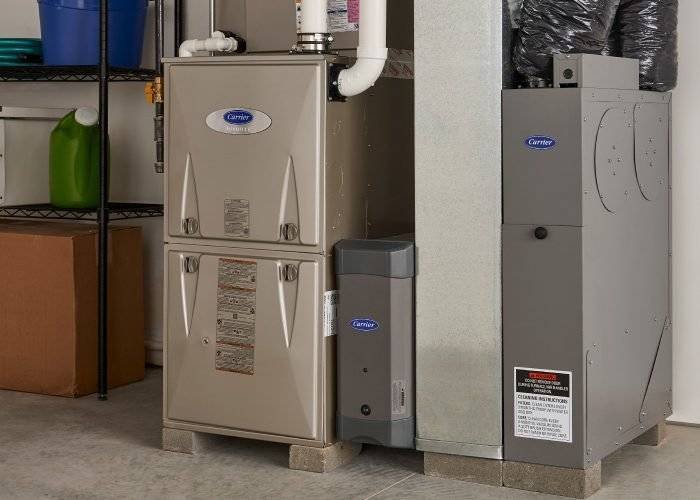
Our Work


